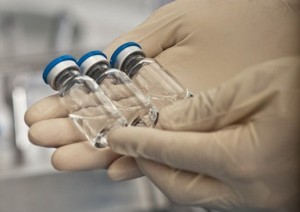Australian pharmaceutical company Phebra in collaboration with distinguished experts from around North Queensland will be working on a new clinical trial to test the efficacy of Magnesium Sulphate as an antidote for Irukandji Syndrome (IS), the acute pain caused by certain jellyfish stings.

The jellyfish that cause IS are most commonly found in Australia’s tropical waters, from Exmouth in Western Australia, to Moreton Bay in south-east Queensland. There are approximately 60 cases of IS reported each year, with victims suffering throbbing pain, headaches, sweating, raised blood pressure and breathing difficulties.
Phebra’s CEO, Dr Mal Eutick said the IS trial – which is scheduled to commence in 2016 – is supported by a grant from the Queensland Emergency Medicine Research Foundation (QEMRF).
Mr Eutick confirmed that Phebra will be working in conjunction with Drs Jeremy Furyk and Clinton Gibbs, as well as with investigators from Queensland Health, Queensland Ambulance Service and Careflight Medical, Retrieval Services to support the trial in emergency departments at hospitals in Cairns, Townsville, Proserpine and Mackay.
“The group has planned a detailed and controlled, multi-centre trial, which will provide clinicians with the data needed to understand the efficacy of Magnesium Sulphate as an antidote for IS in areas where jellyfish stings are most prevalent in the summer months,” Mr Eutick said.
“Phebra continues to support the need for antidotes unique for Australian stings and bites and I am proud that this collaboration demonstrates the value of having supportive Australian based manufacturers who have a desire to support the needs of both our local resident community and overseas visitors.”




















